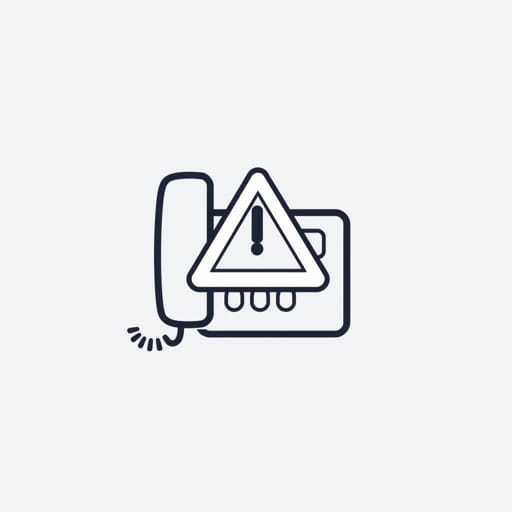Illegal wiretapping is a serious violation of privacy and a federal offense in many countries, including the United States. It involves the unauthorized interception or recording of private conversations, phone calls, or electronic communications without consent. Victims of such activities may feel powerless or uncertain about how to proceed, but there are clear steps that can be taken to report and address illegal wiretapping. Understanding your legal rights and knowing which authorities to approach is crucial to ensure justice and to protect your personal security.
Understanding What Constitutes Illegal Wiretapping
Definition and Examples
Wiretapping is considered illegal when an individual or entity records or listens to private conversations without obtaining the consent required by law. In the United States, the Federal Wiretap Act (Title III of the Omnibus Crime Control and Safe Streets Act of 1968) governs the legality of such actions. In most jurisdictions, at least one party must consent to the recording, but some states require all-party consent.
- Recording phone calls without consent
- Installing hidden microphones or surveillance devices
- Intercepting text messages or emails
- Monitoring conversations using spyware
These actions may be considered criminal offenses, and those who discover they are being monitored unlawfully should act quickly.
Gathering Evidence of Wiretapping
Signs You May Be a Victim
Before reporting illegal wiretapping, it is important to gather evidence. Some potential signs include:
- Unusual clicking or static sounds during calls
- Devices heating up or draining battery faster than usual
- Unfamiliar applications installed on your phone
- Unusual activity in your email or messaging accounts
If you suspect illegal surveillance, document everything. Take screenshots, record dates and times, and save any strange messages or indicators of monitoring. Avoid confronting the suspected party directly, as this may alert them and cause destruction of evidence.
Use Professional Help if Necessary
If you believe you are being wiretapped but cannot locate clear evidence, consider hiring a cybersecurity expert or private investigator. These professionals can scan your devices and premises for spyware, hidden microphones, or unauthorized network access.
Reporting to Law Enforcement
Federal and State Authorities
Once you have gathered sufficient evidence, the next step is to report the illegal wiretapping to the appropriate authorities. In the U.S., you may contact the following:
- Federal Bureau of Investigation (FBI): Handles federal crimes, including illegal surveillance and wiretapping.
- Federal Communications Commission (FCC): Investigates violations of communication privacy laws.
- Local Law Enforcement: State and local police may also have jurisdiction, particularly in cases involving state wiretapping laws.
When reporting, provide all the evidence you have collected. Clearly describe the nature of the suspected wiretapping, including who you believe is responsible, when the incidents occurred, and how you discovered the surveillance.
Filing a Complaint with Regulatory Agencies
Other Avenues for Reporting
In addition to law enforcement, you may file a formal complaint with a regulatory body:
- Federal Trade Commission (FTC): Accepts complaints related to privacy violations and misuse of personal data.
- State Attorney General’s Office: Most states have divisions that deal with consumer protection and privacy violations.
- Consumer Financial Protection Bureau (CFPB): Useful if financial information has also been accessed unlawfully.
These agencies may investigate or refer your case to the appropriate department. Ensure your complaint includes all necessary details, such as how your rights were violated and the impact it has had on your life or work.
Legal Remedies and Civil Action
Suing for Damages
If you are a victim of illegal wiretapping, you may be able to file a civil lawsuit against the person or entity responsible. This can include claims for:
- Invasion of privacy
- Emotional distress
- Punitive damages
Consult with an attorney who specializes in privacy law or civil litigation to explore your legal options. Courts take wiretapping cases seriously, and successful plaintiffs may be awarded substantial compensation.
Seeking Injunctive Relief
In some cases, courts may issue injunctions to stop the ongoing surveillance. This legal order can prevent the perpetrator from continuing to monitor or contact you and may require them to destroy any data already obtained illegally.
Preventing Future Wiretapping
Strengthening Your Digital Security
After reporting the issue, it’s vital to protect yourself against future wiretapping. Here are some steps to consider:
- Use encrypted messaging apps
- Install reputable antivirus and anti-spyware software
- Regularly update your devices and software
- Change your passwords frequently and use strong credentials
- Avoid using public Wi-Fi for sensitive communications
Consulting with a cybersecurity expert can help you implement additional protective measures based on your specific situation.
Understanding the Legal Framework
Federal Wiretap Act and State Laws
The U.S. Federal Wiretap Act prohibits the intentional interception of any wire, oral, or electronic communication unless at least one party consents. Violators may face criminal charges and civil liabilities. State laws may differ; some require two-party or all-party consent. Being aware of the legal standards in your state helps ensure you act within the bounds of the law when collecting evidence or reporting offenses.
Whistleblower Protections
If the illegal wiretapping involves a government entity or employer, whistleblower protection laws may apply. These laws are designed to shield individuals who report illegal or unethical behavior from retaliation. Make sure to document everything and consider seeking legal advice before exposing internal surveillance issues.
Knowing how to report illegal wiretapping is essential in a world where privacy threats are growing. Whether you are a private individual or a public figure, taking decisive action helps protect your rights and sends a clear message against unauthorized surveillance. By understanding the signs, collecting evidence, and reaching out to the proper authorities, you can pursue justice and safeguard your personal security. Illegal wiretapping is not just a privacy issue it is a legal one, and the system provides remedies for those affected.
